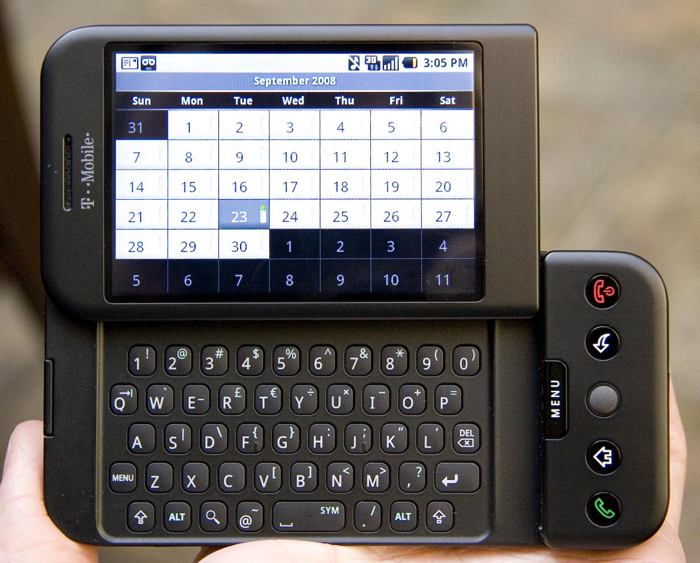
It wasn't too long ago where it was common to see a new high-end Android device released that featured a physical slide-out QWERTY keyboard. You have phones like the Samsung Epic 4G, HTC G1, HTC MyTouch 3G Slide and the Motorola DROID line, among others. But that was long ago. Now-a-days it's surprising to see any Android device that features a physical QWERTY keyboard, let alone flagships. What happened to those devices, and why did they fade out?
It almost seems like the QWERTY keyboard was the training wheels of Android devices. You had the two extremes on either side: BlackBerry, which was very proud of its signature QWERTY keyboard featured on each device, and Apple, who opted to use a completely virtual keyboard on its all-touchscreen iPhone. So here sits Android. What do customers prefer? Virtual keyboards or physical keyboards? At the time, it could have gone either way. So Android does what Android does best: options. Why not both? Why not offer phones with the option to use one or the other? After all, both options have their perks. It was also a good way to figure out which was more popular when it comes to Android devices.
I really enjoyed my Android with the slide-out keyboard. The only one I ever owned was an HTC MyTouch 3G Slide, and if I can't remember anything else that was good about the phone it's that I absolutely loved the solidity that the phone had when it came to sliding out the keyboard. But despite the feeling of being built well hardware-wise, after about a month of using the phone I would rarely take the physical keyboard out unless I was playing some sort of game. It was about then that I realized that I didn't need my training wheels anymore. I was much quicker at using the virtual keyboard than I was at using the physical one, so when it came time to choose my next phone, I opted for one that didn't feature a physical keyboard. I didn't need it anymore, and I'm sure I'm not the only one who made the complete switch over by realizing this.
Even if some people aren't much faster at using virtual keyboards over physical ones, there seems to be an increased effort towards make typing in general easier - a solution that can only be done with virtual keyboards. You have programs like Swype, Minuum, Fleksy, SwiftKey, and many others that work very hard at making predictive texting more efficient than you would have ever thought it could be. As foreign as the concepts may be, not only are they efficient at making typing an easier task, but also faster and generally more accurate. In this day and age, people are looking for ways to save time, and predictive texting is one of those things that people look to in order to do just that.
We could also contribute the lack of physical keyboards to the trade-offs we've made by losing them: more space for battery, resulting in better battery life, and the ability to use these bigger batteries to power higher quality, larger screens into considerably thinner phones. While I'm not saying this is an ideal move for everybody, it does seem to be the direction that trends are moving in. Businesses want to go where the money goes, and right now the money is talking in favor of big thin phones that call for everything except for a physical keyboard. Even BlackBerry headed in this same direction with their BlackBerry Z10 and presumably the A10, although they still offer the Q10 and Q5 for those who still want a physical QWERTY keyboard in a phone, but I digress.
Although keyboards might still be well and alive for BlackBerry (as much as it could be) the money has spoken in favor of Android devices that don't have a physical keyboard attached to it. How popular would the Galaxy S4 or the HTC One be if they all featured physical keyboards? The HTC One in particular would need a complete redesign as the rounded back would no longer be practical, and both would likely lose a lot of the battery life that it needs in order to function with such bright, high definition screens for an ideal period of time. I think that physical keyboards are a lost cause when it comes to flagship Android devices, although there should continue to be options in the market for those who would rather trade off the previously mentioned features in favor of a physical keyboard. But in my opinion, the days of flagship Androids with physical keyboards are over.
Images via Wikimedia, IntoMobile